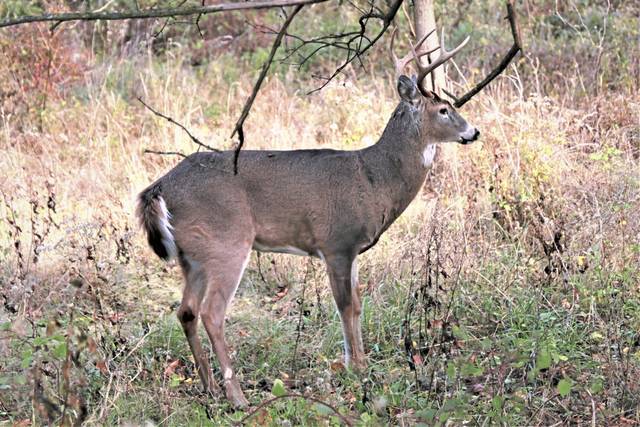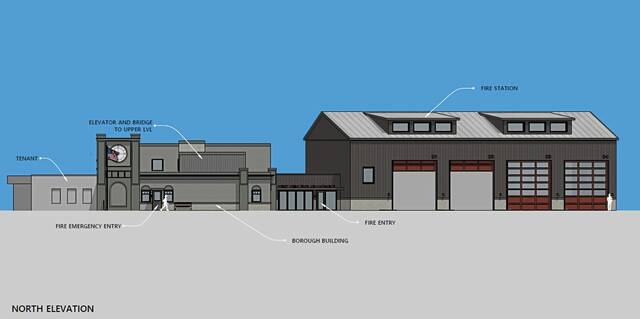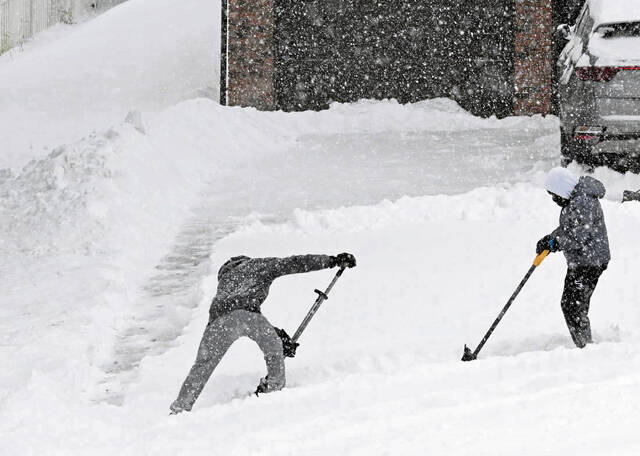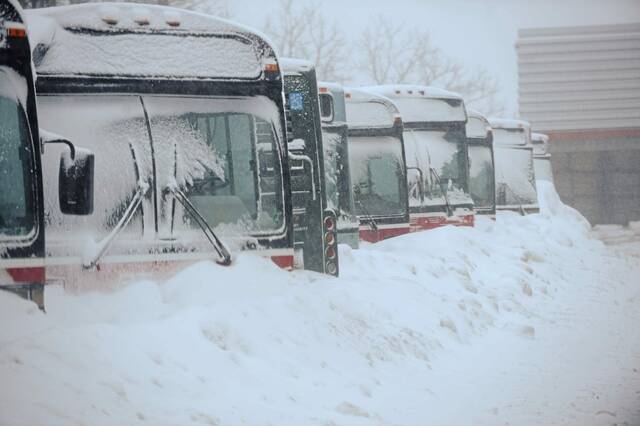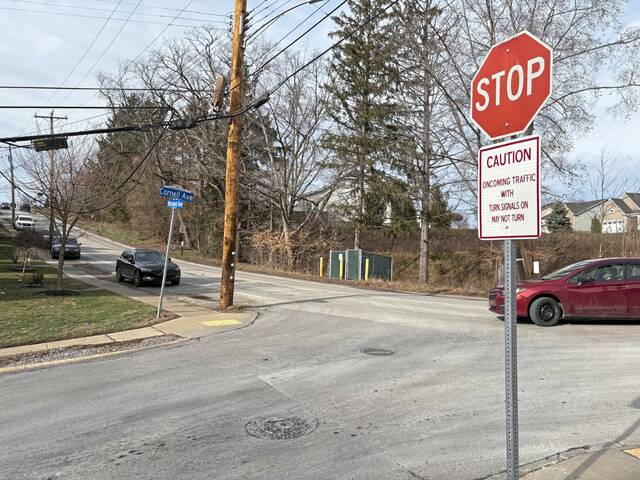McCandless council is mulling whether to move forward with the second phase of its program to curtail the deer population — an organized archery hunt.
Following recommendations from state game officials and other experts in deer population management, council in March enacted a ban on residents purposely placing food out to feed deer.
The ordinance does not regulate what people can plant on their properties or the use of bird feeders, but residents who deliberately feed deer could face fines and jail time.
Experts say feeding deer harms the animals by increasing their chances of contracting Chronic Wasting Disease, a fatal condition spread when healthy dear eat from a pile of food that has been tainted by a sick deer.
Consuming food other than what is available naturally also can lead to serious digestive problems for deer during certain times of the year, according to the game commission.
Deer also become habituated to eating from artificial food sources and stop searching for food in the wild, further risking their ability to survive.
Preliminary details of the proposed archery hunt were outlined for council by Wexford-based Suburban Whitetail Management, which operates the archery hunts for Franklin Park and Ross. Slides from their presentation are posted on the town’s website.
The organized hunts are typically conducted on select public properties and private land at the invitation of the owners.
Town officials have been studying the issue and collecting information to develop a deer management plan for more than a year.
Mike Clinebell, one of the owners of the company, said safety is of paramount importance when hunts are conducted.
“We are a safety-first company,” he said. “We believe that in order for this program to work, an extreme level of safety has to be adhered to, which is our top goal.”
Co-owner Luke Leonard said no accidents have occurred during the hunts the company has organized.
In addition to following the requirements of the state Game Commission, hunters adhere to Suburban Whitetail’s bylaws, which, among other things, requires that they:
• Are interviewed by the company
• Pass an archery proficiency test
• Mark all arrows with a personal identification number
• Provide the municipality with a log of the hours hunted and deer observed and harvested
• Hunt from an elevated platform unless they receive permission to hunt from the ground
• Remove all trash and field dressings from the site
• Donate the first and third deer they harvest to a food bank
The hunts are conducted at no cost to the municipality. Expenses for the hunts are covered by the fees the hunters pay to the organization, Leonard said.
While state law protects property owners if a hunting accident occurs on their land, Suburban Whitetail also carries liability insurance that covers the company, the hunter and the property owner.
While hunting is a sport and participants enjoy it, the controlled hunts are focused on reducing the problems associated with too many deer in populated areas, Clinebell said.
“We want people to think of our program as a conservation tool,” he said. “It’s not a trophy hunt, and we’re not out there looking to kill giant deer. We’re out to help communities control the deer population, which is very robust.
“We’re not looking to eliminate deer — we love them and want them to be part of the landscape for generations to come,” he said.
Game commission officials say measures such as feeding bans and hunts are needed to ensure a healthy deer population by reducing the competition for the available food.
While development has reduced the natural habitat for deer, overpopulation also occurs because they lack predators.
The rate at which deer can multiply is illustrated by an experiment cited by the state Game Commission: in 1927, researchers in Michigan placed six deer in an enclosure. By 1933, the number of deer in the herd had grown to 160.
The growing deer population has been blamed for causing vehicle accidents, spreading Lyme disease through the ticks they carry and gnawing away at expensive landscaping.
Manager Bob Grimm said one issue that could be of concern during an organized hunt is how participants handle situations in which a wounded deer goes onto a property where permission to hunt has not been obtained.
Leonard said hunters must receive permission from the owner before stepping onto private property.
“If the property owner denies access, the hunter will call us and we’ll try to reason with the owner,” he said. “If they still don’t agree, we’ll ask the Game Commission to try to gain access. But really, it’s up to the property owner.”
Clinebell said reducing the chances that a hunter will wound a deer is one of the reasons a proficiency test is required.
“The test is in place to reduce those incidents,” he said. “The hunters have to prove they are accurate and can put in a lethal shot.”
Council has not yet scheduled a vote on whether to proceed with the hunt.
The archery season begins in September and runs through January, with several breaks during that period, Leonard said.
Council has not scheduled a vote on whether to proceed but town officials have indicated that they would like to see the program in place in time for the upcoming hunting season.


